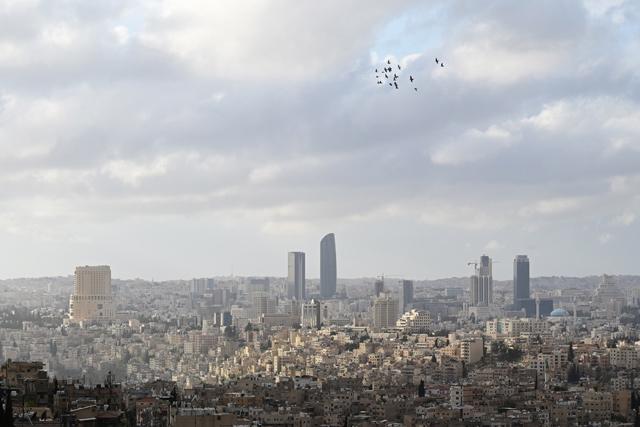- Local News
- Sun-2021-04-11 | 02:56 pm

Nayrouz News Agency :
The Kingdom left an important mark on the world stage by adopting a balanced foreign policy within the region and the world at large despite its limited resources, former officials and commentators said on Saturday.
Their comments came on the occasion of the Kingdom’s celebrations of the centennial of the foundation of the Jordanian state upon the arrival of His Majesty the late King Abdullah I in Maan in November 1920.
Former information minister Mohammad Momani said the Kingdom maintained "a significant degree of political space” for people to voice their opinion over the years.
"This turned out to be one major strength throughout our history since many discussions were in the open and under the light, not in the dark rooms,” Momani told The Jordan Times.
The former minister said the Kingdom witnessed political challenges that were overcome due to the awareness of citizens and the wisdom of the Hashemite leadership as well as the professionalism of the civic and security institutions, Momani said.
"This triangle was the secret formula behind Jordan’s success in facing the many challenges over the years,” Momani added.
Jordan has also been a beacon of stability in a region full of turmoil absorbing many of the region’s shocks and uncertainties, hence the country became a major part of regional stability and a trustworthy ally for the international community, Momani stressed.
Director of Al Quds Centre for Political Studies Oraib Rantawi added that the Kingdom was always in the middle of conflicts and war zones.
Professor of Political Science at the Hashemite University Jamal Shalabi also pointed out that Jordan overcame many conspiracies, challenges and threats that were caused by some entities against the Kingdom.
But despite these challenges, Shalabi maintained, Jordan succeeded in achieving its independence from the British in 1946 and secured unity between the East and the West banks.
Shalabi also highlighted the Kingdom’s founding role in the establishment of the Arab League.
"Jordan was one of the seven countries that formed the Arab League in 1945,” Shalabi said.
Shalabi told The Jordan Times that another achievement for the country almost a decade later was the Arabisation of the Jordanian army, which reflected the Hashemites’ desire to instill the Arab identity into the army.
In addition, Shalabi said the Kingdom also managed to maintain a balance during the Cold War by maintaining strong ties with all the camps involved.
"The mid-1950s witnessed a great openness in Jordan because we had strong political parties and an elected parliamentary government,” Rantawi explained.
Jordan was one of the first countries in the region to have strong political parties that was a mixture of different ideologies and tribal figures, Rantawi said.
Rantawi said it is of utmost importance to sustain the security and stability of Jordan to maintain stability in the area.
"This has been the equation throughout history. Jordan is in the middle of all the conflicts and is trying to support other countries in the region but would not interfere in certain matters to protect our interest and borders,” Rantawi said.
Shalabi added that the country needs to focus on strengthening the democratic process by ensuring that everyone is involved in the decision-making process.
"We should also look at the past and learn from our mistakes in order to move forward in a constructive and comprehensive manner,” Shalabi said









